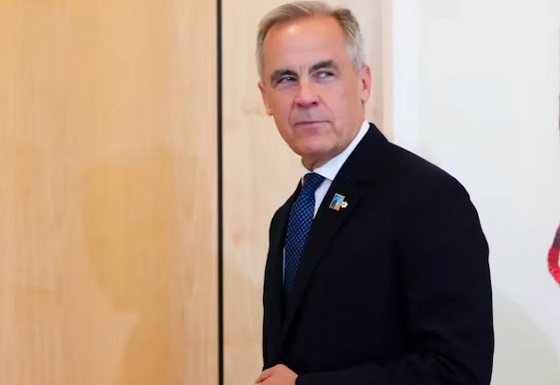Brownstone Institute
Big Pharma’s Rap Sheet

From the Brownstone Institute
By
It was one of those conversations you never forget. We were discussing – of all things – the Covid injections, and I was questioning the early ‘safe and effective’ claims put forward by the pharmaceutical industry. I felt suspicious of how quickly we had arrived at that point of seeming consensus despite a lack of long-term safety data. I do not trust the pharmaceutical industry. My colleague did not agree, and I felt my eyes widen as he said, “I don’t think they would do anything dodgy.” Clearly, my colleague had not read the medical history books. This conversation slapped me out of my own ignorance that Big Pharma’s rap sheet was well-known in the profession. It isn’t.
With this in mind, let’s take a look at the history of illegal and fraudulent dealings by players in the pharmaceutical industry; an industry that has way more power and influence than we give them credit for.
Before I continue, a word (not from our sponsor). There are many people working in this industry who have good intentions towards improving healthcare for patients, dedicating their lives to finding a cure or treatment for disease. Some therapeutic pharmaceuticals are truly life-saving. I probably wouldn’t be here today were it not for a couple of life-saving drugs (that’s a story for another time). But we must be very clear in our understanding. The pharmaceutical industry, as a whole and by its nature, is conflicted and significantly driven by the mighty dollar, rather than altruism.
There are many players and different games being played by the industry. We ignore these at our peril. The rap sheet of illegal activities is alarming. It seems that barely a month goes by without some pharmaceutical company in court, somewhere. Criminal convictions are common and fines tally into the billions. Civil cases, with their million-dollar settlements, are abundant too.
A 2020 peer-reviewed article published in the Journal of the American Medical Association outlines the extent of the problem. The group studied both the type of illegal activity and financial penalties imposed on pharma companies between the years 2003 and 2016. Of the companies studied, 85 percent (22 of 26) had received financial penalties for illegal activities with a total combined dollar value of $33 billion. The illegal activities included manufacturing and distributing adulterated drugs, misleading marketing, failure to disclose negative information about a product (i.e. significant side effects including death), bribery to foreign officials, fraudulently delaying market entry of competitors, pricing and financial violations, and kickbacks.
When expressed as a percentage of revenue, the highest penalties were awarded to Schering-Plough, GlaxoSmithKline (GSK), Allergan, and Wyeth. The biggest overall fines have been paid by GSK (almost $10 billion), Pfizer ($2.9 billion), Johnson & Johnson ($2.6 billion), and other familiar names including AstraZeneca, Novartis, Merck, Eli Lilly, Schering-Plough, Sanofi Aventis, and Wyeth. It’s quite a list, and many of the Big Pharma players are repeat offenders.
Prosecuting these companies is no mean feat. Cases often drag for years, making the avenue of justice and resolution inaccessible to all but the well-funded, persistent, and steadfast. If a case is won, pharma’s usual response is to appeal to a higher court and start the process again. One thing is clear; taking these giants to court requires nerves of steel, a willingness to surrender years of life to the task, and very deep pockets.
For every conviction, there are countless settlements, the company agreeing to pay out, but making no admission of guilt. A notable example is the S35 million settlement made, after 15 years of legal maneuvering, by Pfizer in a Nigerian case that alleged the company had experimented on 200 children without their parent’s knowledge or consent.
Reading through the case reports, the pattern of behavior is reminiscent of the movie Groundhog Day with the same games being played by different companies as if they are following some kind of unwritten playbook.
Occasionally there is a case that lifts the lid on these playbook strategies, revealing the influence of the pharma industry and the lengths they are willing to go to, to turn a profit. The Australian Federal Court case Peterson v Merck Sharpe and Dohme, involving the manufacturer of the drug Vioxx, is a perfect example.
By way of background, Vioxx (the anti-arthritis drug Rofecoxib) was alleged to have caused an increased risk of cardiovascular conditions including heart attack and stroke. It was launched in 1999 and, at peak popularity, was used by up to 80 million people worldwide, marketed as a safer alternative to traditional anti-inflammatory drugs with their troublesome gastrointestinal side effects.
In Peterson v Merck Sharpe and Dohme, the applicant – Graeme Robert Peterson – alleged the drug had caused the heart attack he suffered in 2003, leaving him significantly incapacitated. Peterson argued that the Merck companies were negligent in not having withdrawn the drug from the market earlier than they did in 2004 and, by not warning of the risks and making promotional representations to doctors, were guilty of misleading and deceptive conduct under the Commonwealth Trade Practices Act 1974.
In November 2004 Dr David Graham, then Associate Director for Science and Medicine in FDA’s Office of Drug Safety provided powerful testimony to the US Senate regarding Vioxx. According to Graham, prior to the approval of the drug, a Merck-funded study showed a seven-fold increase in heart attacks. Despite this, the drug was approved by regulatory agencies, including the FDA and the TGA.
This finding was later supported by another Merck-funded study, VIGOR – which showed a five-fold increase, the results of which were published in the high-impact New England Journal of Medicine. It was later revealed by subpoena during litigation that three heart attacks were not included in the original data submitted to the journal, a fact that at least two of the authors knew at the time. This resulted in a ‘misleading conclusion’ regarding the risk of heart attack associated with the drug.
By the time Peterson v Merck Sharpe and Dohme, an associated class action involving 1,660 people, was heard in Australia in 2009, the international parent of MSD, Merck, had already paid $4.83 billion to settle thousands of lawsuits in the US over adverse effects of Vioxx. Predictably, Merck made no admission of guilt. The Australian legal battle was a long, drawn-out affair, taking several years with more twists and turns than a cheap garden hose (you can read more about it here and here).
Long story short, a March 2010 Federal Court finding in favor of Peterson was later overturned by a full bench of the Federal Court in Oct 2011. In 2013, a settlement was reached with class action participants which resulted in a mere maximum payment of $4,629.36 per claimant. MSD generously waived their claim for legal costs against Peterson.
What’s notable in this battle was the headline-grabbing courtroom evidence detailing the extent of alleged pharmaceutical misdeeds in marketing the drug. The pharma giant went to the lengths of producing sponsored journals with renowned scientific publisher Elsevier, including a publication called The Australasian Journal of Bone and Joint Medicine. These fake ‘journals’ were made to look like independent scientific journals, but contained articles attributed to doctors that were ghostwritten by Merck employees. Some doctors listed as honorary Journal board members said they had no idea they were listed in the journal and had never been given any articles to review.
But wait, there’s more.
The trove of internal emails presented in evidence revealed a more sinister level of operation. One of the emails circulated at the pharma giant’s US headquarters contained a list of ‘problem physicians’ that the company sought to ‘neutralize’ or ‘discredit.’ The recommendations to achieve these ends included payment for presentations, research and education, financial support of private practice, and ‘strong recommendation(s) to discredit.’ Such was the extent of intimidation, that one professor wrote to the head of Merck to complain about the treatment of some of his researchers critical of the drug. The court heard how Merck had been ‘systematically playing down the side effects of Vioxx’ and their behavior ‘seriously impinge(d) on academic freedom.’
This alleged systematic intimidation was as extensive as it was effective. Result? Merck made over $2 billion per year in sales before Vioxx was finally pulled from pharmacy shelves in 2004. In his testimony, Dr Graham estimated that between 88,000 and 139,000 excess cases of heart attack or sudden cardiac death were caused by Vioxx in the US alone before it was withdrawn.
These systems of influence, manipulation, and tactics were largely operative when Covid arrived. Add to that the ‘warp speed’ development of novel ‘vaccines,’ government green lights, pharmaceutical indemnity, and confidential contracts. Now you have the makings of a pharmaceutical payday the likes of which we have never seen before.
It should come as no surprise then, the recent announcement that five US states – Texas, Kansas, Mississippi, Louisiana, and Utah – are taking Pfizer to court for withholding information, and misleading and deceiving the public through statements made in marketing its Covid-19 injection. That these cases are filed as civil suits under consumer protection laws is likely just the tip of the pharmaceutical playbook iceberg. No doubt the discovery process will hold further lessons for us all.
Brownstone Institute
Anthony Fauci Gets Demolished by White House in New Covid Update

From the Brownstone Institute
By
Anthony Fauci must be furious.
He spent years proudly being the public face of the country’s response to the Covid-19 pandemic. He did, however, flip-flop on almost every major issue, seamlessly managing to shift his guidance based on current political whims and an enormous desire to coerce behavior.
Nowhere was this more obvious than his dictates on masks. If you recall, in February 2020, Fauci infamously stated on 60 Minutes that masks didn’t work. That they didn’t provide the protection people thought they did, there were gaps in the fit, and wearing masks could actually make things worse by encouraging wearers to touch their face.
Just a few months later, he did a 180, then backtracked by making up a post-hoc justification for his initial remarks. Laughably, Fauci said that he recommended against masks to protect supply for healthcare workers, as if hospitals would ever buy cloth masks on Amazon like the general public.
Later in interviews, he guaranteed that cities or states that listened to his advice would fare better than those that didn’t. Masks would limit Covid transmission so effectively, he believed, that it would be immediately obvious which states had mandates and which didn’t. It was obvious, but not in the way he expected.

And now, finally, after years of being proven wrong, the White House has officially and thoroughly rebuked Fauci in every conceivable way.
White House Covid Page Points Out Fauci’s Duplicitous Guidance
A new White House official page points out, in detail, exactly where Fauci and the public health expert class went wrong on Covid.
It starts by laying out the case for the lab-leak origin of the coronavirus, with explanations of how Fauci and his partners misled the public by obscuring information and evidence. How they used the “FOIA lady” to hide emails, used private communications to avoid scrutiny, and downplayed the conduct of EcoHealth Alliance because they helped fund it.
They roast the World Health Organization for caving to China and attempting to broaden its powers in the aftermath of “abject failure.”
“The WHO’s response to the COVID-19 pandemic was an abject failure because it caved to pressure from the Chinese Communist Party and placed China’s political interests ahead of its international duties. Further, the WHO’s newest effort to solve the problems exacerbated by the COVID-19 pandemic — via a “Pandemic Treaty” — may harm the United States,” the site reads.
Social distancing is criticized, correctly pointing out that Fauci testified that there was no scientific data or evidence to support their specific recommendations.
“The ‘6 feet apart’ social distancing recommendation — which shut down schools and small business across the country — was arbitrary and not based on science. During closed door testimony, Dr. Fauci testified that the guidance ‘sort of just appeared.’”
There’s another section demolishing the extended lockdowns that came into effect in blue states like California, Illinois, and New York. Even the initial lockdown, the “15 Days to Slow the Spread,” was a poorly reasoned policy that had no chance of working; extended closures were immensely harmful with no demonstrable benefit.
“Prolonged lockdowns caused immeasurable harm to not only the American economy, but also to the mental and physical health of Americans, with a particularly negative effect on younger citizens. Rather than prioritizing the protection of the most vulnerable populations, federal and state government policies forced millions of Americans to forgo crucial elements of a healthy and financially sound life,” it says.
Then there’s the good stuff: mask mandates. While there’s plenty more detail that could be added, it’s immensely rewarding to see, finally, the truth on an official White House website. Masks don’t work. There’s no evidence supporting mandates, and public health, especially Fauci, flip-flopped without supporting data.
“There was no conclusive evidence that masks effectively protected Americans from COVID-19. Public health officials flipped-flopped on the efficacy of masks without providing Americans scientific data — causing a massive uptick in public distrust.”
This is inarguably true. There were no new studies or data justifying the flip-flop, just wishful thinking and guessing based on results in Asia. It was an inexcusable, world-changing policy that had no basis in evidence, but was treated as equivalent to gospel truth by a willing media and left-wing politicians.
Over time, the CDC and Fauci relied on ridiculous “studies” that were quickly debunked, anecdotes, and ever-shifting goal posts. Wear one cloth mask turned to wear a surgical mask. That turned into “wear two masks,” then wear an N95, then wear two N95s.
All the while ignoring that jurisdictions that tried “high-quality” mask mandates also failed in spectacular fashion.

And that the only high-quality evidence review on masking confirmed no masks worked, even N95s, to prevent Covid transmission, as well as hearing that the CDC knew masks didn’t work anyway.
The website ends with a complete and thorough rebuke of the public health establishment and the Biden administration’s disastrous efforts to censor those who disagreed.
“Public health officials often mislead the American people through conflicting messaging, knee-jerk reactions, and a lack of transparency. Most egregiously, the federal government demonized alternative treatments and disfavored narratives, such as the lab-leak theory, in a shameful effort to coerce and control the American people’s health decisions.
When those efforts failed, the Biden Administration resorted to ‘outright censorship—coercing and colluding with the world’s largest social media companies to censor all COVID-19-related dissent.’”
About time these truths are acknowledged in a public, authoritative manner. Masks don’t work. Lockdowns don’t work. Fauci lied and helped cover up damning evidence.
If only this website had been available years ago.
Though, of course, knowing the media’s political beliefs, they’d have ignored it then, too.
Republished from the author’s Substack
Brownstone Institute
RCMP seem more interested in House of Commons Pages than MP’s suspected of colluding with China

From the Brownstone Institute
By
Canadians shouldn’t have information about their wayward MPs, but the RCMP can’t have too much biometric information about regular people. It’s always a good time for a little fishing. Let’s run those prints, shall we?
Forget the members of Parliament who may have colluded with foreign governments. The real menace, the RCMP seem to think, are House of Commons pages. MPs suspected of foreign election interference should not be identified, the Mounties have insisted, but House of Commons staff must be fingerprinted. Serious threats to the country are hidden away, while innocent people are subjected to state surveillance. If you want to see how the managerial state (dys)functions, Canada is the place to be.
In June, the National Security and Intelligence Committee of Parliamentarians (NSICOP) tabled its redacted report that suggested at least 11 sitting MPs may have benefitted from foreign election interference. RCMP Commissioner Mike Duheme cautioned against releasing their identities. Canadians remained in the dark until Oct. 28 when Kevin Vuong, a former Liberal MP now sitting as an Independent, hosted a news conference to suggest who some of the parliamentarians may be. Like the RCMP, most of the country’s media didn’t seem interested.
But the RCMP are very interested in certain other things. For years, they have pushed for the federal civil service to be fingerprinted. Not just high security clearance for top-secret stuff, but across government departments. The Treasury Board adopted the standard in 2014 and the House of Commons currently requires fingerprinting for staff hired since 2017. The Senate implemented fingerprinting this year. The RCMP have claimed that the old policy of doing criminal background checks by name is obsolete and too expensive.
But stated rationales are rarely the real ones. Name-based background checks are not obsolete or expensive. Numerous police departments continue to use them. They do so, in part, because name checks do not compromise biometric privacy. Fingerprints are a form of biometric data, as unique as your DNA. Under the federal Identification of Criminals Act, you must be in custody and charged with a serious offence before law enforcement can take your prints. Canadians shouldn’t have information about their wayward MPs, but the RCMP can’t have too much biometric information about regular people. It’s always a good time for a little fishing. Let’s run those prints, shall we?
It’s designed to seem like a small deal. If House of Commons staff must give their fingerprints, that’s just a requirement of the job. Managerial bureaucracies prefer not to coerce directly but to create requirements that are “choices.” Fingerprints aren’t mandatory. You can choose to provide them or choose not to work on the Hill.
Sound familiar? That’s the way Covid vaccine mandates worked too. Vaccines were never mandatory. There were no fines or prison terms. But the alternative was to lose your job, social life, or ability to visit a dying parent. When the state controls everything, it doesn’t always need to dictate. Instead, it provides unpalatable choices and raises the stakes so that people choose correctly.
Government intrudes incrementally. Digital ID, for instance, will be offered as a convenient choice. You can, if you wish, carry your papers in the form of a QR code on your phone. Voluntary, of course. But later there will be extra hoops to jump through to apply for a driver’s licence or health card in the old form.
Eventually, analogue ID will cost more, because, after all, digital ID is more automated and cheaper to run. Some outlets will not recognize plastic identification. Eventually, the government will offer only digital ID. The old way will be discarded as antiquated and too expensive to maintain. The new regime will provide the capacity to keep tabs on people like never before. Privacy will be compromised without debate. The bureaucracy will change the landscape in the guise of practicality, convenience, and cost.
Each new round of procedures and requirements is only slightly more invasive than the last. But turn around and find you have travelled a long way from where you began. Eventually, people will need digital ID, fingerprints, DNA, vaccine records, and social credit scores to be employed. It’s not coercive, just required for the job.
Occasionally the curtain is pulled back. The federal government unleashed the Emergencies Act on the truckers and their supporters in February 2022. Jackboots in riot gear took down peaceful protesters for objecting to government policy. Authorities revealed their contempt for law-abiding but argumentative citizens. For an honest moment, the government was not incremental and insidious, but enraged and direct. When they come after you in the streets with batons, at least you can see what’s happening.
We still don’t know who colluded with China. But we can be confident that House of Commons staffers aren’t wanted for murder. The RCMP has fingerprints to prove it. Controlling the people and shielding the powerful are mandates of the modern managerial state.
Republished from the Epoch Times
-

 Bruce Dowbiggin4 hours ago
Bruce Dowbiggin4 hours agoWhat Connor Should Say To Oilers: It’s Not You. It’s Me.
-

 Business5 hours ago
Business5 hours agoFederal fiscal anchor gives appearance of prudence, fails to back it up
-

 Business3 hours ago
Business3 hours agoThe Passage of Bill C-5 Leaves the Conventional Energy Sector With as Many Questions as Answers
-

 Alberta1 hour ago
Alberta1 hour agoAlberta poll shows strong resistance to pornographic material in school libraries
-

 Crime14 mins ago
Crime14 mins agoFlorida rescues 60 missing kids in nation’s largest-ever operation
-

 Banks2 hours ago
Banks2 hours agoScrapping net-zero commitments step in right direction for Canadian Pension Plan
-

 Alberta2 days ago
Alberta2 days agoAlberta’s government is investing $5 million to help launch the world’s first direct air capture centre at Innisfail
-

 armed forces2 days ago
armed forces2 days agoMark Carney Thinks He’s Cinderella At The Ball







